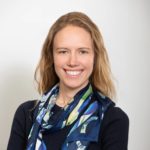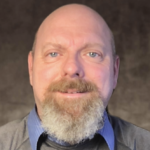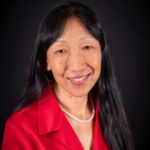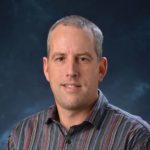Focus Area:
Astrodynamics and Satellite Navigation; Remote Sensing, Earth and Space Sciences
Education:
PhD, Electrical Engineering, The Pennsylvania State University, 1991
MS, Electrical Engineering, Case Western Reserve University, 1987
BS, Physics, Nanjing University, 1983
Professional Experience:
2019 – Present, Director, Colorado Center for Astrodynamics Research, University of Colorado Boulder
2017 – Present, Professor, Aerospace Engineering Sciences, University of Colorado Boulder
2018 – 2019, Chair for Graduate Studies, Aerospace Engineering Sciences, University of Colorado Boulder
2014 – 2017, Professor, Electrical and Computer Engineering, Colorado State University
2009 – 2014, Professor, Electrical and Computer Engineering, Miami University
2006 – 2009, Associate Professor, Electrical and Computer Engineering, Miami University
2000 – 2006, Assistant Professor, Electrical and Computer Engineering, Miami University
1991 – 1993, Post-doctoral Fellow, Space Physics Research Laboratories, The University of Michigan
1987 – 1991, Graduate Research Assistant, Electrical and Computer Engineering, The Pennsylvania State University
1985 – 1987, Graduate Research Assistant, Electrical Engineering and Applied Physics, Case Western Reserve University
1983 – 1985, Faculty, Physics Department, Nanjing University
Awards (Selected):
Faculty Research Award, College of Engineering and Applied Sciences, University of Colorado Boulder, 2021
Johannes Kepler Award, Institute of Navigation (ION), 2020
Richard B. Kershner Award, IEEE Aerospace and Electronic Systems Society, PLANS, 2020
Distinguished Lecturer, IEEE Aerospace and Electronic Systems Society, 2019-21
Distinguished Performance Award, Aerospace Engineering Sciences Department, University of Colorado Boulder, 2019
Fellow, Royal Institute of Navigation (2019)
Samuel M. Burka Award, Institute of Navigation (ION) (2016)
Best session paper, ION GPS/GNSS/GNSS+ Conference (2020, 2019, 2018, 2017, 2016, 2015, 2014, 2011, 2007, 2004)
GPS World Leadership Service Award, GPS World Magazine (2015)
Fellow, ION (2015)
Fellow, IEEE (2014)
Tan Chin Tuan Faculty Fellow, Nanyang Technological University, Singapore (2014)
First place team advisor, ION Autonomous Snowplow Competition (2014)
Distinguished Scholar, Miami University (2013)
Thurlow Award, ION (2013)
Woman’s Leadership Award, Miami University (2013)
Jennie Elder Suel Distinguished Woman of Color Award, Miami University (2013)
Best paper, Colloquium Sci. Fundamental Aspects Galileo Program (2013)
Best paper in track, IEEE/ION PLANS Conference (2012)
Best paper, IEEE NAECON (2011)
Outstanding Researcher, School of Eng. & Applied Sci., Miami University (2011, 2005)
Sigma Xi Researcher of the Year, Miami University (2009)
Teaching Excellence award, School of Engineering & Applied Sci., Miami University (2007)
National Research Council/AFOSR Summer Faculty Fellow (2004, 2003, 2002)
First place, Annual Graduate Research Exhibition, Penn State University (1990)
Research Interests:
Global Navigation Satellite Systems (GNSS) receiver technology for navigation in challenging environments and for remote sensing of the ionosphere, atmosphere, and Earth’s surface.



